Bio-Identical Hormone Replacement Therapy (BHRT)
Bioidentical Hormones
Bio-identical hormones can be used to supplement our own hormone production and therefore treat symptoms associated with these hormone imbalances.
‘Bio-identical’ hormones are compounds that are identical in structure to those that are produced by our own human body, and are made from natural sources like soy or wild yam.
Benefits of BHRT
Hormone levels decline with age. In women, the resulting hormone imbalances are associated with development of wrinkles & loss of skin elasticity, reduction in bone density, and symptoms such as hot flashes, vaginal dryness, weight gain, mood changes, etc.
These symptoms typically develop around perimenopause or menopause. Bioidentical hormones can be used to supplement our own hormone production and therefore treat symptoms associated with these hormone imbalances.
There are also cases where bioidentical hormone replacement therapy can be used to support younger women. Progesterone is a great example. Progesterone production tends to begin its decline around our mid-30s. Progesterone can help with insomnia, painful periods, mood issues, but it is most famous for its role in pregnancy. Good levels of progesterone (“pro”-“gestation”) are absolutely critical to support pregnancy. With more and more women conceiving babies in their 30s, bioidentical progesterone may be used to support fertility.
Progesterone may also be used to support women with endometriosis. Women with endometriosis are typically estrogen dominant, with progesterone deficiency and/or progesterone resistance. In these cases progesterone may help significantly reduce pain and other symptoms associated with endo.
It has been shown to improve skin texture, and elasticity, and to reduce wrinkles.
In cancer patients, BHRT has improved general well-being and quality of life.
What can BHRT help with?
- PMS
- Endometriosis
- Perimenopause
- Menopause
- Osteoporosis
- Stress & Depression
- Memory Loss
- Sleep disturbances
- Irregular periods
- Fatigue
- Sexual Health and Libido
- Vaginal Dryness
- Hot Flashes
- Fibrocystic Breasts
- Weight Gain
- Aging Skin
- Hormonal (Cyclical) Migraines
- Reduce Risk of DIabetes
- Hair Loss

Is BHRT safe?
Research shows that bioidentical hormones do not share the same side effect and risk profile as synthetic hormones.
A growing body of evidence supports the safety of bioidentical hormones and their association with lowering a patient’s baseline risks for breast cancer, cardiovascular disease, alzheimer’s disease, dementia, and osteoporosis.
Bioidentical estrogens and progesterone are not associated with an increased risk of blood clots as has been shown with synthetic versions of these hormones.
What contributes to a Hormone Imbalance?
Our hormones are always talking to each other. There are many lifestyle factors that can interfere with that communication. Things like poor diet, stress, drug or alcohol use, birth control pill, lack of exercise, excess weight, poor sleep, inflammation and exposure to environmental toxins.
How do we correct a hormone imbalance?
First, we first have to figure out which hormones are out of balance. Testing is very important to determine this. Ongoing testing is also important if we supplement the body with bioidentical hormones in order to continue to monitor levels.
Then we treat using a combination of lifestyle recommendations, nutrition, herbs/supplements and bioidentical hormones (if needed). There’s no set dosage for bioidentical hormones, the amount is prescribed to you based on testing and symptoms and is monitored carefully. Adding back hormones is a great strategy to support health but we must also address lifestyle, nutrition, sleep and stress to support overall well-being. And ensure that hormones are being appropriately metabolized and eliminated.

